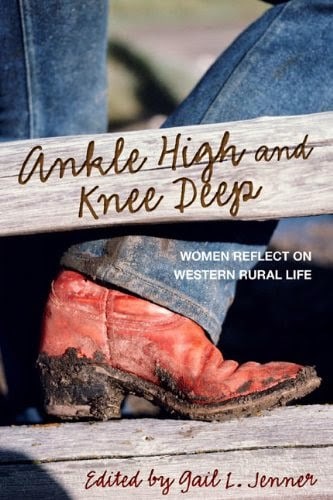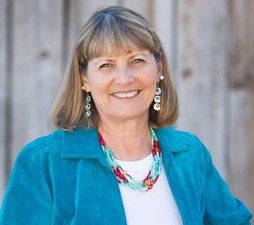ANKLE HIGH AND KNEE DEEP has officially been released! I’m so thrilled….and so proud of the 40+ women who participated in this venture. It was a book I have envisioned for many years and features both known and unknown writers, many of whom declared, “I can’t write!”
But our collected stories are here and already the book is listed #25 on the list of books related to RURAL LIFE on www.amazon.com — and it’s only been available for a couple weeks.
As an introduction to the anthology, I’m posting the Introduction to the book here. It was part of the pitch I gave to the editor at Two Dot/Globe Pequot more than 2 years ago. She loved the concept and worked with me through the development of what would be included or discarded with energy and tenacity. I’m so grateful to Erin Turner, our editor. The pitching process took a couple of months, UNTIL I settled on the title of the book – ANKLE HIGH AND KNEE DEEP. Funny, the power in a title; when I wrote Erin and suggested it, she immediately wrote back: “That’s it! We got it now!”
“Farming seems easy when your plow is a pencil and you are a thousand miles from the corn field.” ~ Dwight Eisenhower
Life is all about the learning, and the “family farm” is a great schoolhouse. AnkleHigh and Knee Deep represents what 40+ rural/farm women have learned while standing in or stepping out of mud, manure, and other “offal.” It is a collection of entertaining and inspirational essays that offers a unique perspective on love, marriage, parenting, relationships, loss, and other universal issues. These women’s connection to the land and to the people and animals in their lives is documented here.
Concepts that the general public has now adopted, words like sustainability and renewable/recyclable, come to us directly from the life of a farmer or rancher. Working within a landscape that can change with the seasons or alongside the forces of nature that demand commitment and sacrifice develops deep character; interestingly, the word “character” comes from the Greek word meaning “to chisel.” That describes perfectly what living and working in an often harsh physical environment does to the human soul.
Several of the best lessons I’ve learned have come from forty-two plus years spent onour fifth-generation ranch:
*Sometimes the mud and muck gets ankle deep, but it can always be washed off.
*You’ve got to plant the seeds before there’s anything worth harvesting.
*Waiting is time well spent. After winter comes spring, and after spring rains comes the summer harvest.
*Never think anything is not worth saving; sometimes it’s just the odd piece of baling wire that keeps things from falling apart.
*Don’t be in a hurry; that’s when you run through fences or get stuck in ditches.
*Always watch out for the soft places: Anything that looks that good has got to be dangerous.
*Don’t ignore the rotten apples. They can destroy the entire barrelful if overlooked.
*Don’t be afraid of hard work and sweat. There’s nothing finer than a shower or warm fire after a day well spent.
*Love your job. It’s what you do, all day, every day.
*Just because a skunk is cute doesn’t mean he won’t stink!
*Don’t look back: that’s when you find yourself belly up in a low spot.
*Don’t hold onto trouble; you’ve got to spread the manure around in order to make it effective fertilizer.
*Do things right the first time so you don’t have to do them twice.
*Be willing to invest – not only money – but sweat and time. In the end you’ll have something worth keeping.
*Out of the garbage heap grow the seeds you ignored.
*Good fences make good neighbors; know what people’s boundaries are and learn to respect them.
*To have a good garden, you’ve got to live in it; weeds take over quickly.
*Weaning time can’t be ignored; there’s a right time to let go.
*Most of the time there’s no choice: Success requires frequent sacrifice and persistence.
Though not a faith-based book, this collection of essays does underscore traditional values while providing an oftimes humorous look at life spent at the wrong end of a tractor, cow, or horse. Many reflect the lessons learned from a life centered around work, work, and more work. Trivial moments become significant moments of transition – revealing that maybe the destination isn’t as important as the road that leads there.
Maybe that’s why farmers eventually become philosophers.




